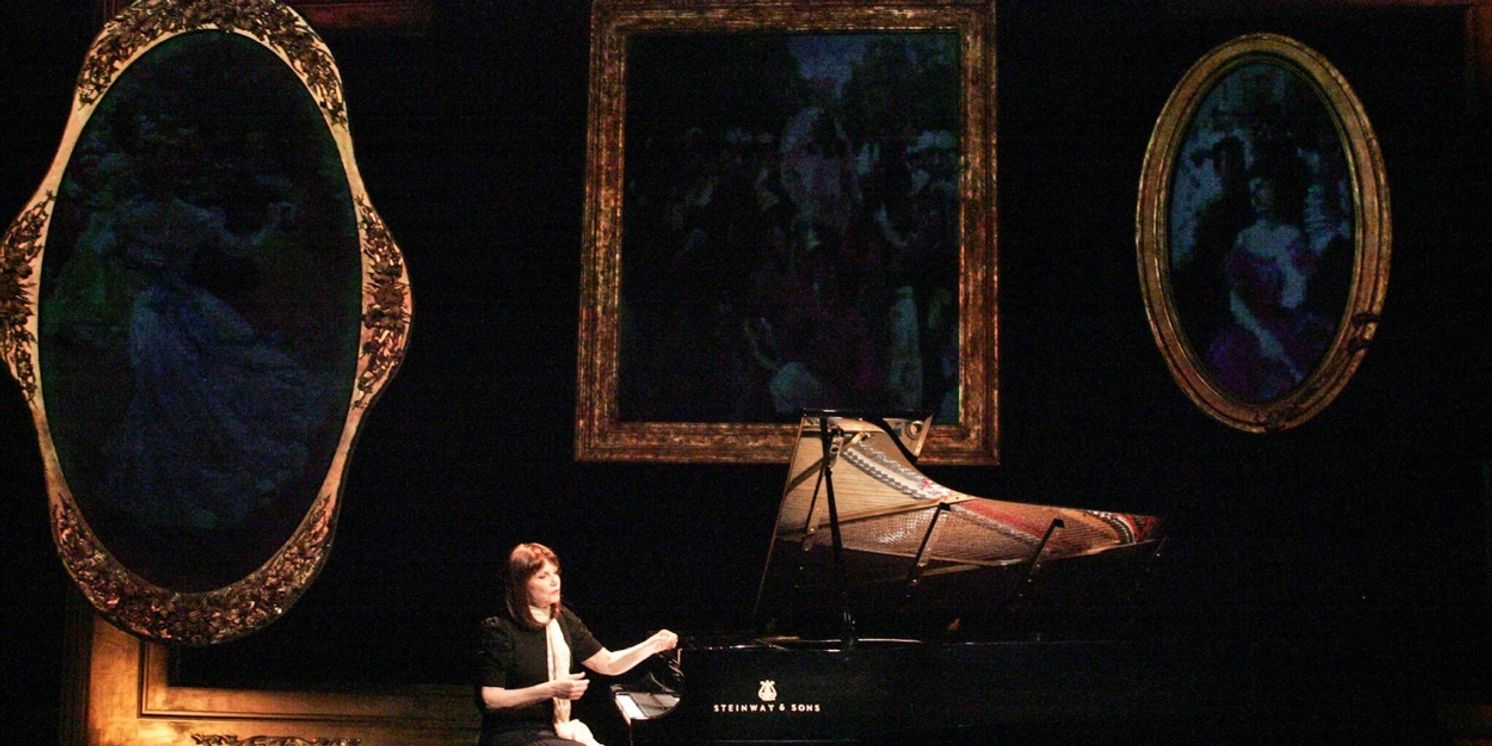Review: THE PIANIST OF WILLESDEN LANE at Theatre J
Unique production returns to DC

In 2002, when Mona Golabek published her book about her mother The Pianist of Willesden Lane as well as in 2012 when Hershey Felder adapted it for the stage, Holocaust denial was in rather more remission than can be said of it in 2022. So Theatre J's remounting of the 90 minute play in its own house (which was under renovation during their last production of it in 2018) is not only timely, but urgent and necessary.
Golabek became a concert pianist because her mother, Lisa Jura, was one. Jura left her birthplace in Vienna on one of the Kindertransport, which settled about 10,000 Jewish children in Britain during the ten months between Kristallnacht in 1938 and Britain's declaration of war with Germany in 1939. And Golabek became an actor to tell her mother's story more dimensionally than the words of the 2002 book, co-written with Lee Cohen, are able to do. The music of Grieg, Beethoven, Bach, Debussy, and Rachmaninoff does more than punctuate or accompany Lisa Jura's biography; Golabek's sensational playing articulates the power that live classical music has to wordlessly affect people. The Pianist of Willesden Lane is both a one-woman show and a concert.
The title refers to the group home in northwest London where the teenage Lisa Jura wound up residing. She worked in an East End manufacturing plant, sewing uniforms for British soldiers. But she had been studying and practicing piano from early childhood in Vienna. There was a piano at Willesden Lane; Jura used it, and the ways in which continuing to play helped her shape and direct her life form the play's spine. Jura told her daughter Mona story after story about the people who helped her in London and about the other young people at Willesden Lane. But the memory of her Jewish parents and sisters back in Austria remained a constant in the background of her narrative to her daughter.
Photos of them figure in the splendid projections by Andrew Wilder and Greg Sowizdrzal. What seems to be just a black backdrop with some picture frames comes alive with historic photos and footage while Golabek speaks and/or plays the Steinway. (Lighting/Video Design, Jason Bieber; Production Design, Hershey Felder and Trevor Hay). Documentaries have an immediacy as an art form, but rarely do they feature the kind of first-person, first-generation storytelling as happens in The Pianist of Willesden Lane. And documentaries usually employ music as background; but this play and Mona Golabek foreground music. Golabek and this unusual and very special theatre piece run through December 18.
(photo by Hershey Felder Presents)
Reader Reviews
Videos

